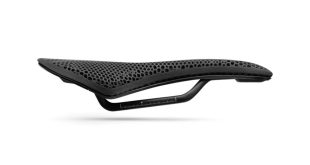CTC campaigns and policy director Roger Geffen has sided with the Bicycle Association of Great Britain following the publication of a letter scathing of the BAGB, written by the secretary general of the European Two Wheel Retailers’ Association. ETRA’s Annick Roetynck had complained about Phillip Darnton’s letter to the UK Department for Transport, published on BikeBiz.com before Christmas.
It has now emerged that the CTC chief exectutive Kevin Mayne had penned a similar letter to transport minister Norman Baker, urging the UK Government to opt out of any EU reclassification of e-bikes. This reclassification – removing bikes with electric motors from motorbike type-approval – is expected to be approved early in 2012.
Geffen contacted BikeBiz.com with the CTC’s position on e-bike reclassification and his communication is published in full below.
++++++
CTC, along with its partners in the European Cyclists’ Federation, is very supportive of the growth of electric cycles. They could provide huge benefits for people who might be unable or unwilling to rely solely on pedal power, or for journeys which would otherwise be just a bit too long to be cycled comfortably.
The recent growth in electric bicycle sales in the Netherlands and other EU countries is something we would be very pleased to see in the UK. However, there is a very good reason why it is important to maintain a distinction between the terms "electrically assisted" for pedal cycles whose motors have a maximum power of 0.25kW (and which only work above 6km/h if the user is also pedalling), and "motor vehicles" for anything more powerful.
In common with the Bicycle Association, CTC is very concerned at ETRA’s efforts to persuade the EU to blur this distinction. That’s because 0.25kW is about the maximum power output that even the fittest cyclist can sustain for any length of time. If the vehicle’s motor is more powerful than the human riding it, then it ceases to be an "Electrically Assisted Pedal Cycle" (EAPC), and instead it effectively becomes a "pedal-assisted electric motor cycle".
It is important to maintain a clear distinction between the two. Pedal cycles (including EAPCs), with their limited power, can legally be used without any requirement to licence either the rider or the machine; they can be ridden on cycle tracks and other "off-road" settings where motor vehicles are not permitted (including bridleways, restricted byways and many towpaths, and often in "pedestrianised" town centres); and there is no requirement to wear a helmet.
However, if the definition of a "pedal cycle" is suddenly widened to include machines which are basically electric motorbikes, then cyclists risk losing all of these privileges.
And one of the most powerful arguments for investing in cycle routes – namely the massive health benefits of cycling – will be lost if these facilities are also to be opened up to a variety of motorised vehicles which provide no health benefits whatsoever.
The need to regulate "pedal assisted mountain bikes" (which can provide up to 4kW of power, up to speeds of 45km/h) is not a justification for blurring the distinction between EAPCs and electrically powered motorbikes – there are other ways to do this.
As for the argument that ETRA’s proposals must be OK because it is illegal to sell unsafe vehicles – well, it is legal to sell very high-powered motorbikes and, indeed, 40 tonne lorries. The fact that something is ‘legal’ therefore does nothing to reassure me of its safety for cyclists or for pedestrians.
In a democracy, it is perfectly legitimate for ETRA to represent the interests of electric (as well as conventional) motorbike manufacturers. However the overwhelming opposition from cycling groups to its proposals should completely give the lie to ETRA’s claims to be lobbying for these changes with the interests of cycling at heart. It is doing nothing of the sort.
 BikeBiz Bicycle and cycling retail news
BikeBiz Bicycle and cycling retail news



